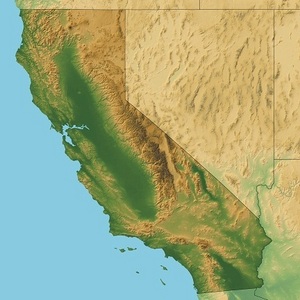Petitions request rehearing of recent LCFS case in California

October 4, 2013
BY Erin Krueger
Petitions have been filed in the U.S. Court of Appeals for the 9th circuit, requesting a rehearing en banc with regard to a recent ruling that determined that California’s low carbon fuel standard (LCFS) program does not violate interstate commerce laws. That opinion, published on Sept. 18 by a panel of three judges, overturned a December 2011 ruling by the district court that the program did facially discriminate against out of state ethanol, impermissibly engaged in extraterritorial regulation of ethanol production and discriminated against out-of-state crude oil.
One judge in the panel dissented to a portion of the panel’s ruling. Within court documents, she noted that the current version of the LCFS facially discriminates against interstate commerce and that the state has failed to demonstrate that a nondiscriminatory version of the regulation would be unable to achieve its legitimate local interest of reducing greenhouse gas (GHG) emissions.
Advertisement
Advertisement
One petition was filed by the Counsel for American Fuels & Petrochemical Manufactures Association, American Trucking Associations, the Center for North American Energy Security, and Consumer Energy Alliance. The group argues that the petition should be granted because the panel of judges didn’t apply strict scrutiny to a facially discriminatory law, which conflicts with Supreme Court precedent. They also argue that the panel’s ruling that the LCFS’s crude oil provisions do not discriminate against interstate and foreign commerce conflicts with Supreme Court precedent and the panel’s option conflicts with decisions of the Supreme Court and other circuits by granting California unprecedented power to regulate commerce occurring wholly outside of California.
In a press release, American Fuel & Petrochemical Manufactures said its petition also highlights the fact that the panel ignored the state’s admissions that it designed the LCFS specifically to grow a California biofuels industry at the expense of other states’ biofuel industries.
“The court’s ruling sets a dangerous precedent, if California may penalize fuels based on the location of origin and the type of processes used to create them, it may likewise penalize every other imported product, whether it be oranges from Florida or cars from Michigan,” said AFPM General Counsel Rich Moskowitz. “Despite the fact that the LCFS clearly discriminates against fuels produced in other states, the Ninth Circuit Court of Appeals chose to ignore controlling Supreme Court precedent. We believe the Ninth Circuit should reconsider the decision and agree to rehear the case.”
Advertisement
Advertisement
A similar petition was filed with the court by Rocky Mountain Farmers Union, Redwood County Minnesota Corn and Soybean Growers, Penny Newman Grain Inc., Fresno County Farm Bureau, Nisei Farmers League, California Dairy Campaign, Rex Nederend, Growth Energy and the Renewable Fuels Association. That petition argues that the panel failed to apply strict scrutiny to the LCFS’s facial discrimination in direct conflict with Supreme Court precedent and that the panel erroneously held that the LCFS does not regulate commerce outside of California in contravention of Supreme Court precedent and in conflict with decisions from other federal circuits.
According to court documents, the California Air Resources Board must file a response to the petitions within 21 days.
Related Stories
The U.S. EPA on July 8 hosted virtual public hearing to gather input on the agency’s recently released proposed rule to set 2026 and 2027 RFS RVOs. Members of the biofuel industry were among those to offer testimony during the event.
The U.S. exported 31,160.5 metric tons of biodiesel and biodiesel blends of B30 and greater in May, according to data released by the USDA Foreign Agricultural Service on July 3. Biodiesel imports were 2,226.2 metric tons for the month.
The USDA’s Risk Management Agency is implementing multiple changes to the Camelina pilot insurance program for the 2026 and succeeding crop years. The changes will expand coverage options and provide greater flexibility for producers.
President Trump on July 4 signed the “One Big Beautiful Bill Act.” The legislation extends and updates the 45Z credit and revives a tax credit benefiting small biodiesel producers but repeals several other bioenergy-related tax incentives.
CARB on June 27 announced amendments to the state’s LCFS regulations will take effect beginning on July 1. The amended regulations were approved by the agency in November 2024, but implementation was delayed due to regulatory clarity issues.
Upcoming Events










